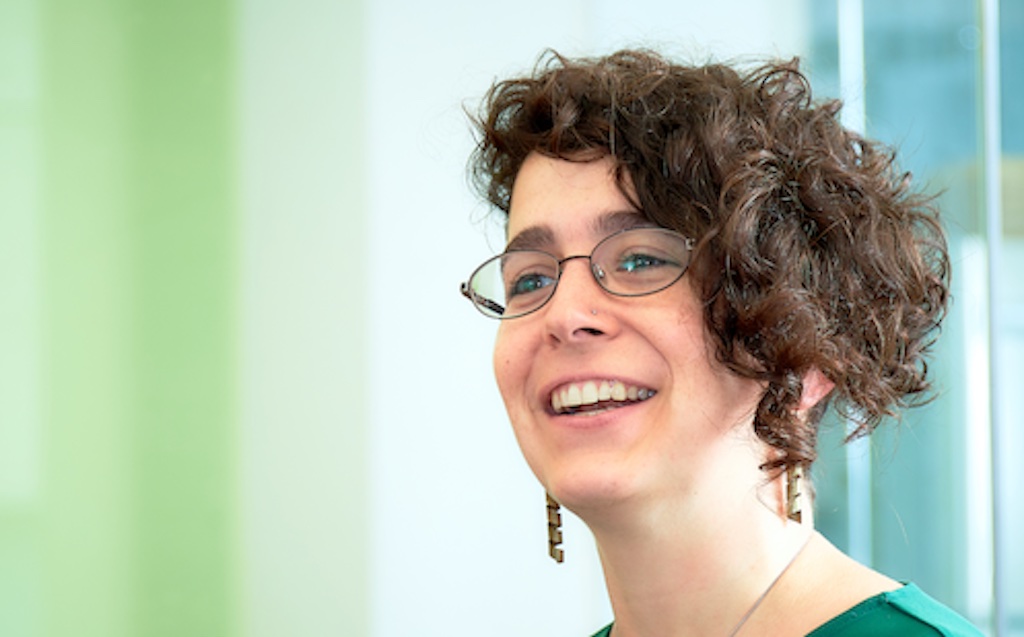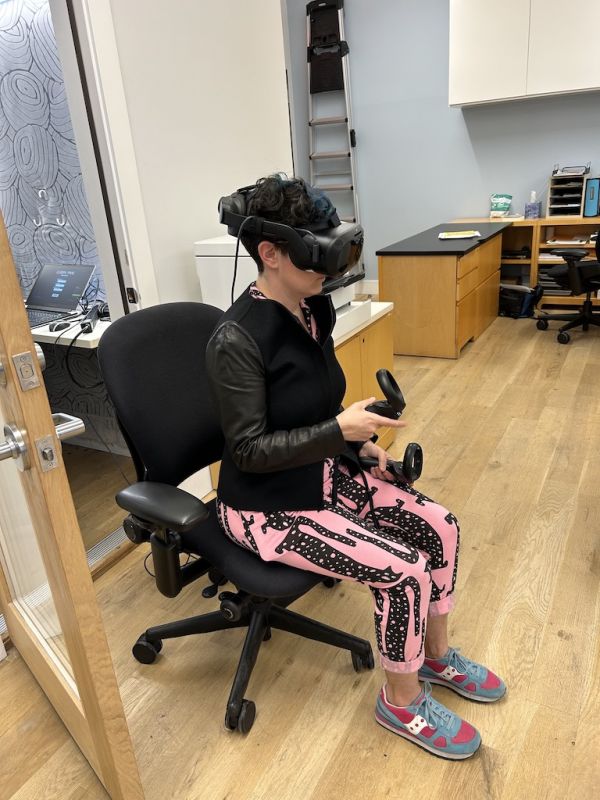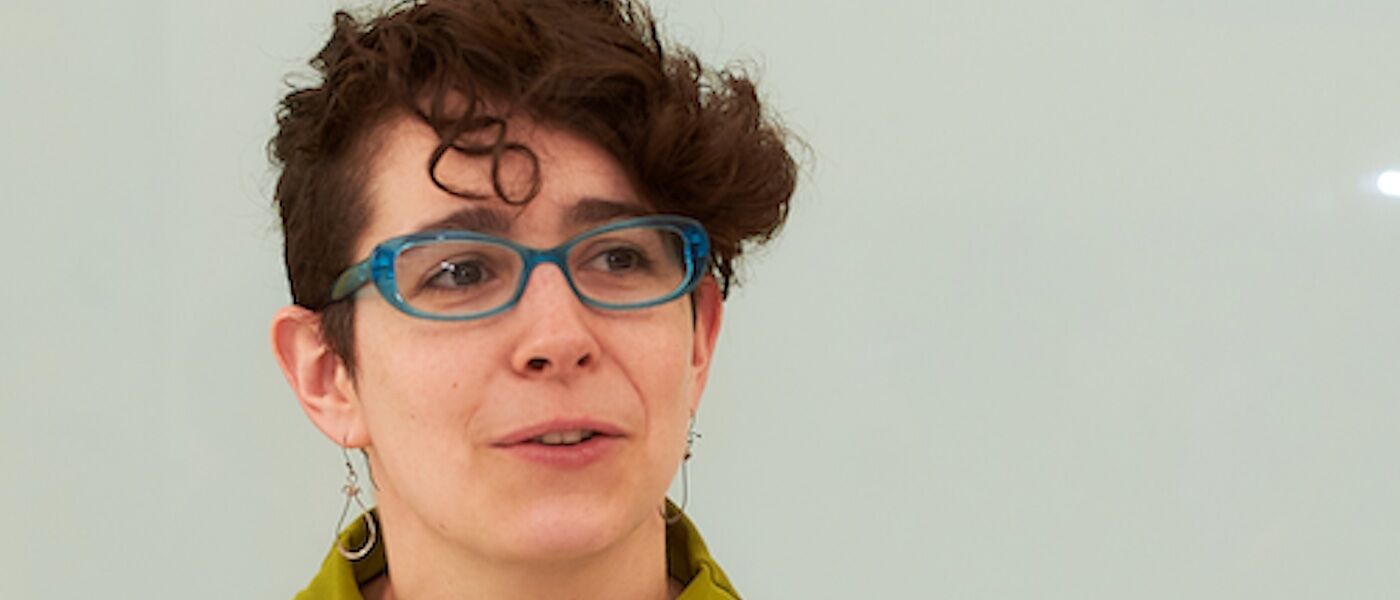Experiencing the impossible: exploring the future of VR with Knology’s Dr. Jena Barchas-Lichtenstein
On Thursday, Nov. 9 at LSC After Dark, you’re invited to test a new virtual reality experience, as part of a research study funded by the National Science Foundation!
This VR experience is led by our friends from Knology. Participants will spend up to 15 minutes in VR and around 30 minutes discussing the experience with a researcher. As a thank you, all participants will receive two free admission passes to LSC!
In the days leading up to LSC After Dark, we caught up with Dr. Jena Barchas-Lichtenstein, principal researcher at Knology, to learn more about the VR experience and the work they do.
Read below to learn about Jena’s career path, the future of VR, and their excitement to be partnering with LSC!

Liberty Science Center: Please tell us about your position at Knology and the type of work you do there.
Dr. Jena Barchas-Lichtenstein: Knology is a non-profit organization that works at the intersection of social science and real-world impact. We feel strongly that research is not just theoretical but actively contributes to shaping a future that provides a more informed, sustainable, cooperative, and inclusive society for everyone. Knology collaborates with media outlets, libraries, museums, game developers, and community organizations to turn research into immediate action. Together, we're pioneering a new approach, which directly connects research to action by embedding it directly within the work.My job is leading our media research and partnerships. I work closely with news outlets, like PBS NewsHour and WNYC/Gothamist, to help them ensure their audiences are learning. And I also work closely with educational designers and developers, like the folks who built Europa Prime. I do everything from the early stages of partnership building to grant-writing to research design to getting deep in the weeds of data collection. Basically, I am a social scientist who studies what people take away from games, the news, and more.
What was your career path that led you to what you do now?
Dr. JBL: I have a PhD in linguistic anthropology, which is basically the study of social interaction, and especially how people use language and symbols to create and navigate social reality. I knew very early into my graduate studies that I didn't want to go be a professor, and it took me a few different roles to figure out what I love to do and what I'm best at. Before coming to Knology almost 7 years ago, I worked in language and culture training software development, and then in private-sector consulting.
What was the coolest thing you’ve done or experienced in your work at Knology?
Dr. JBL: We're finishing up a multi-year grant with PBS NewsHour called Meaningful Math, where we've been trying to figure out how reporters can present numbers and statistics in ways that help people make sense of those numbers. We have created a website with advice for journalists and communicators. But the coolest thing for me personally is anytime I see a chart or a graph that follows the guidelines, whether on NewsHour or elsewhere, and I think to myself, "I know why it looks like that! I was part of that conversation!"
LSC: How do you think virtual reality is going to change the future? What do people have to look forward to about the future of VR?
Dr. JBL: In the short term, the most exciting potential uses for VR for me are being able to experience things that aren't physically possible right now—like the trip to Europa we will take LSC After Dark visitors on! I had seen a lot of videos of this experience before I ever put a headset on, and I was still blown away by the detail and the immersion.
In the longer term, I'm excited about social VR. People tend to forget that we've had virtual social worlds for about forty years: Text-based MUDs (multi-user dungeons) have been around since the late 1970s, and graphical MMOs (massively multiplayer online games) first appeared in the 1980s. If you remember Second Life, it's now 20 years old. But VR will offer us a way of taking those immersive social worlds and making them even more immersive, in the way that the Europa Prime experience is immersive.
That said, there are still some big barriers to entry. Headsets are heavy and expensive. They're not necessarily compatible with the devices we already have. And so I think we'll see a really big change at some point, when headsets weigh about as much as eyeglasses. But I don't have any idea how far away that point is.

How does it feel to be partnering with Liberty Science Center and presenting Knology’s work with us?
Dr. JBL: I am fighting the urge to just hold down the exclamation point. The LSC opened when I was 10 years old and my family went all the time. So much of my curiosity about the world came from exposure to the science center, and that's part of how I ended up where I am. So being able to work with an institution that was part of my childhood is pretty much a dream come true.
Why do you think LSC After Dark guests should check out your work during the nights that you’ll be here?
Dr. JBL: Who doesn't want to travel to Jupiter? And there's not enough room for all of us (okay, or any of us) on next year's Europa Clipper mission.
Click here to sign up for the VR experience at LSC After Dark on Nov. 9! Please note – participants must be 21+ and have a general admission ticket to LSC After Dark on Nov. 9 in order to join the study.
